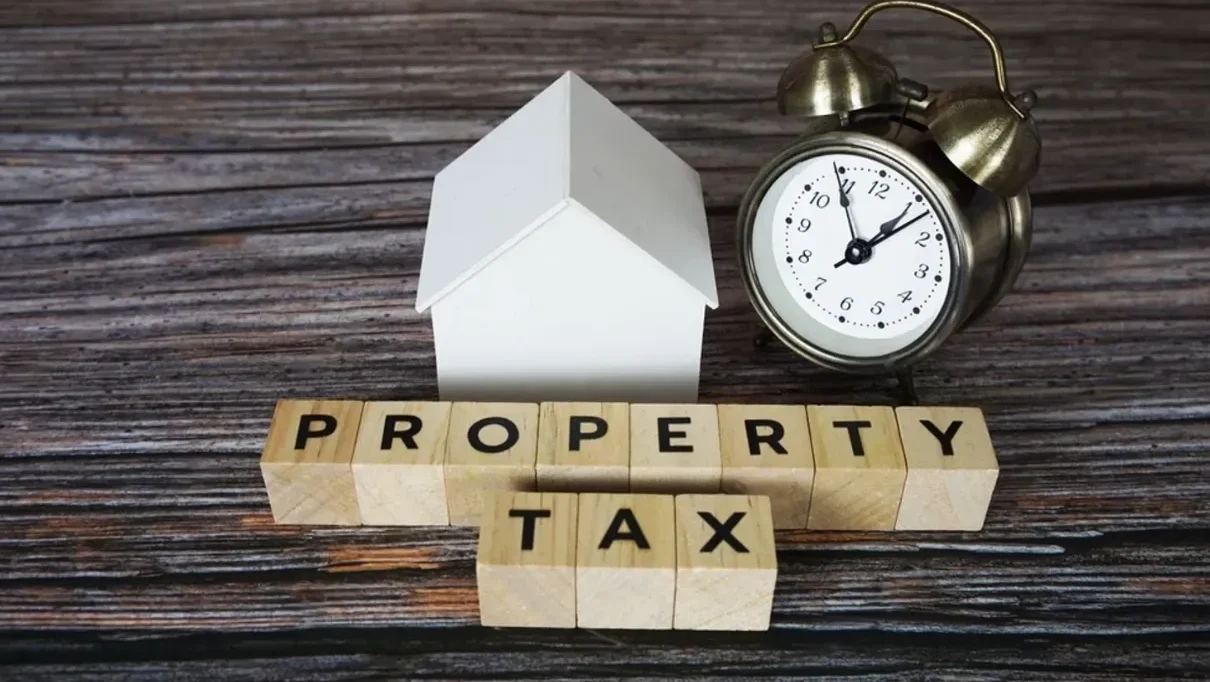
Property taxes are a significant financial obligation for homeowners, business owners, and real estate investors. They fund essential local services like schools, roads, and public safety, but they can also strain your budget if you’re overpaying due to an unfair assessment. As a taxpayer, you have specific rights that empower you to challenge your property tax assessment, claim exemptions, and ensure you’re paying only what’s fair. However, many property owners are unaware of these rights or feel intimidated by the process. This beginner’s guide provides a clear, comprehensive overview of your property tax rights, helping you navigate the system with confidence and potentially save money on your tax bill.
What Are Property Tax Rights?
Property tax rights are the legal protections and opportunities granted to you as a property owner to ensure your property is assessed fairly and taxed appropriately. These rights vary by state and county, but they generally include the ability to:
- Receive clear information about your property’s assessed value.
- Protest an assessment you believe is too high.
- Claim exemptions or deductions to reduce your taxable value.
- Access public records related to your property’s valuation.
- Appeal decisions if your protest is denied.
Understanding these rights is the first step to taking control of your property taxes. This guide breaks down the key rights you have, explains how to exercise them, and offers practical tips for beginners.
Key Property Tax Rights Every Owner Should Know
1. Right to Receive an Appraisal Notice
Your county appraisal district is required to send you an annual appraisal notice, typically in the spring, detailing your property’s assessed value for the upcoming tax year. This notice is your starting point for understanding how much you’ll owe in taxes. Your rights include:
- Clear Information: The notice must clearly state the assessed value, any exemptions applied, and the deadline for filing a protest.
- Timely Delivery: The district must send the notice in advance, giving you sufficient time to review and respond (usually 30–45 days before the protest deadline).
- Access to Details: You’re entitled to see how the district calculated your value, including data on comparable sales or property characteristics.
Action Tip: When you receive your notice, review it carefully for errors, such as incorrect square footage, misclassified property features, or missing exemptions. Compare the assessed value to recent sales of similar properties in your area using tools like Zillow or your county’s property search portal.
2. Right to Protest Your Assessment
If you believe your property is overvalued, you have the right to protest the assessment. This is one of the most powerful tools for reducing your tax bill. Key aspects of this right include:
- File a Protest: You can file a formal protest with your appraisal district, typically within 30–45 days of receiving your notice or by May 15 (whichever is later in some states).
- State Your Case: You can argue that your property’s market value is too high or that it’s assessed unequally compared to similar properties.
- Informal Review: Many districts offer an informal meeting with an appraiser to resolve your protest before a formal hearing.
- Appraisal Review Board (ARB) Hearing: If the informal review doesn’t satisfy you, you’re entitled to a hearing before an independent ARB panel, where you can present evidence like comparable sales or property damage documentation.
Action Tip: Gather strong evidence, such as recent sales of similar properties or photos of issues like foundation cracks, to support your protest. File your protest on time to avoid missing the deadline.
3. Right to Claim Exemptions
Exemptions reduce the taxable value of your property, directly lowering your tax bill. You have the right to apply for any exemptions you qualify for, which may include:
- Homestead Exemption: For primary residences, this can reduce your assessed value (e.g., by $25,000–$50,000 in some states) and cap annual value increases.
- Senior Citizen Exemption: If you’re over a certain age (often 65), you may qualify for additional reductions or tax freezes.
- Disabled Person Exemption: Available for individuals with qualifying disabilities, often similar to senior exemptions.
- Veteran Exemption: Veterans, especially those with disabilities, may receive partial or full exemptions.
- Agricultural or Historical Exemptions: For properties used for farming or designated as historic landmarks.
Action Tip: Check your appraisal district’s website for a list of exemptions and application requirements. Apply as soon as you’re eligible, as some exemptions aren’t automatically granted.
4. Right to Access Public Records
You have the right to access public records related to your property’s valuation, which can help you build a strong protest case. These records include:
- Property Data: Details like square footage, number of bedrooms, or land size used by the appraisal district.
- Comparable Sales: Sales data for similar properties in your area, which can show if your assessment is too high.
- Appraisal Methods: Information on how the district calculated your value, such as mass appraisal models or market trends.
Action Tip: Visit your appraisal district’s website or office to request these records. Use them to identify errors (e.g., incorrect lot size) or find comps that support a lower value.
5. Right to Appeal ARB Decisions
If your protest is denied or you’re unhappy with the ARB’s decision, you have the right to appeal further. Depending on your state, options may include:
- Binding Arbitration: A neutral third party reviews your case for a fee (e.g., $250–$500), offering a faster alternative to court.
- District Court: You can file a lawsuit, though this is costly and typically requires a lawyer.
- State Office of Administrative Hearings (SOAH): In some states, you can appeal to a state agency for a hearing.
Action Tip: Weigh the costs of appealing against potential tax savings. For high-value properties, consulting a property tax professional before appealing can be worthwhile.
6. Right to Fair and Equal Treatment
Your property must be assessed fairly and uniformly compared to similar properties. This is known as the “equal and uniform” principle. If your property is valued significantly higher than comparable properties, you can protest on the grounds of unequal appraisal.
Action Tip: Compare your assessment to those of similar properties in your neighborhood using public records. If you find discrepancies, include this in your protest.
7. Right to Transparency and Assistance
Appraisal districts are required to provide clear information about the protest process, exemptions, and your rights. They must also offer assistance, such as:
- Protest Forms: Available online or at the district office.
- Guides and FAQs: Many districts publish resources explaining the process.
- Staff Support: You can contact the district with questions or for clarification.
Action Tip: If you’re confused, call or email your appraisal district. Their staff can explain deadlines, forms, or evidence requirements.
How to Exercise Your Property Tax Rights
Now that you know your rights, here’s a beginner-friendly roadmap to put them into action:
- Review Your Appraisal Notice: Check for errors in value, property details, or exemptions. Compare the assessed value to recent sales in your area.
- Research Exemptions: Apply for any exemptions you qualify for immediately. Missing exemptions can inflate your tax bill.
- Gather Evidence for a Protest: Collect comparable sales, photos of property issues, or appraisal district records to support a lower value.
- File a Protest: Submit your protest form by the deadline, stating reasons like “market value too high” or “unequal appraisal.”
- Prepare for the Process: Attend an informal review or ARB hearing, presenting your evidence clearly. Practice summarizing your case in 2–3 minutes.
- Consider Professional Help: If the process feels overwhelming, hire a property tax consultant. They can handle everything, often on a contingency fee basis (paid only if they save you money).
- Appeal if Necessary: If the ARB ruling isn’t satisfactory, explore arbitration or other appeal options, but weigh costs against potential savings.
Why Understanding Your Rights Matters
Exercising your property tax rights can lead to significant financial benefits. Here’s why it’s worth the effort:
- Lower Tax Bills: Correcting an overvaluation reduces your taxes. For example, lowering a $400,000 assessment by $30,000 at a 2.5% tax rate saves $750 annually.
- Long-Term Savings: A successful protest can keep your assessment fair in future years, as districts often base new valuations on prior ones.
- Maximizing Exemptions: Claiming exemptions like homestead or senior discounts can save thousands over time.
- Fairness: Ensuring your property is assessed equitably prevents you from subsidizing others’ lower taxes.
- Empowerment: Knowing your rights gives you confidence to challenge the system and protect your financial interests.
Real-World Example
Consider Jane, a homeowner whose property is assessed at $350,000. She notices similar homes in her neighborhood sold for $320,000 and her appraisal lists an incorrect number of bathrooms. Jane exercises her rights by:
- Applying for a homestead exemption, reducing her taxable value by $25,000.
- Filing a protest with comps and photos of outdated fixtures.
- Attending an ARB hearing, where her evidence secures a $30,000 reduction.
With a 2% tax rate, Jane’s combined savings ($25,000 exemption + $30,000 reduction) lower her tax bill by $1,100 annually.
Common Misconceptions About Property Tax Rights
Newcomers often hesitate to exercise their rights due to myths. Let’s debunk a few:
- “Protesting Will Raise My Taxes”: A protest can only lower your assessed value or leave it unchanged—it cannot increase it unless significant errors are found (rare).
- “It’s Too Complicated”: While the process has steps, appraisal districts provide resources, and consultants can simplify it.
- “Exemptions Are Automatic”: Many exemptions require an application, so you must actively claim them.
- “Only Big Properties Benefit”: Even modest homes can save hundreds through protests or exemptions.
Tips for Beginners
- Start Early: Review your appraisal notice as soon as you receive it to avoid rushing before the protest deadline.
- Use Online Resources: Your appraisal district’s website offers forms, guides, and data to help you understand and exercise your rights.
- Document Everything: Keep copies of your notice, protest forms, evidence, and correspondence for reference.
- Ask for Help: If you’re unsure, contact your appraisal district or a property tax consultant for guidance.
- Check Annually: Property values and exemptions change yearly, so review your notice each spring to stay proactive.
Should—you Hire a Consultant?
For beginners, the protest process can feel daunting. A property tax consultant can exercise your rights on your behalf, offering:
- Expertise: Knowledge of local laws and appraisal methods.
- Efficiency: Handling research, filing, and hearings to save you time.
- Higher Success Rates: Professional presentation and strong evidence improve outcomes.
- Contingency Fees: Many charge only if they reduce your taxes, minimizing risk.
If you prefer to go it alone, use this guide and your appraisal district’s resources to navigate the process.
Taking the First Step
Understanding your property tax rights is the foundation for ensuring you’re not overpaying. Start by reviewing your appraisal notice for accuracy and checking for unclaimed exemptions. If your assessed value seems high, gather evidence and consider filing a protest. Whether you tackle it yourself or hire a consultant, exercising your rights can lead to significant savings and peace of mind.
For more details, visit your county appraisal district’s website or contact their office for forms, deadlines, and resources. If you need personalized advice, reach out to a licensed property tax consultant.
Disclaimer: Property tax laws and procedures vary by state and county. Always verify local rules with your appraisal district or a qualified professional. This guide is for informational purposes and does not constitute legal advice.
You Might Also Like
Popular Categories
Popular News

Collin County News
McKinney Planning & Zoning Commission Recommends Expansion of Aster Park with 300 New Homes June 13, 2025
Collin County News
Celina Approves $11.87 Million Phase 1 Contract for Wilson Creek Park June 13, 2025
Flower Mound - Highland Village - Argyle
Walmart Health & Wellness Expands Access to Care Across Texas, Including North Texas Communities June 11, 2025
Collin County News
Plano’s Asphalt Overlay Projects Resume, Signaling Continued Investment in Infrastructure June 11, 2025
Collin County News
Celina Greenlights 49 New Homes at The Parks at Wilson Creek June 9, 2025
Grapevine - Colleyville - Southlake
🚌 Carroll ISD Offers Discounted 2025–26 Bus Passes Through July 14 June 9, 2025
Collin County News
McKinney Approves Zoning for 785-Acre Billingsley Development, Paving Way for Major Growth June 6, 2025
Collin County News
Celina Plans 130 New Homes as Growth Continues Across North Texas June 4, 2025










